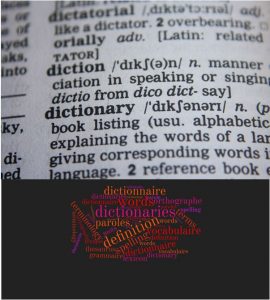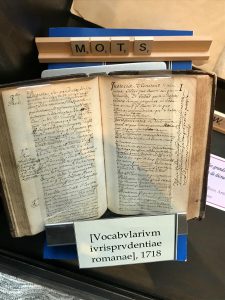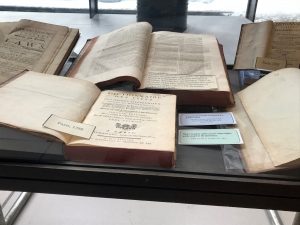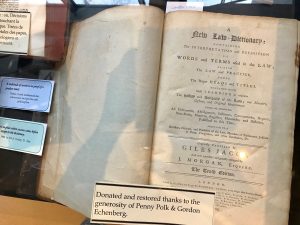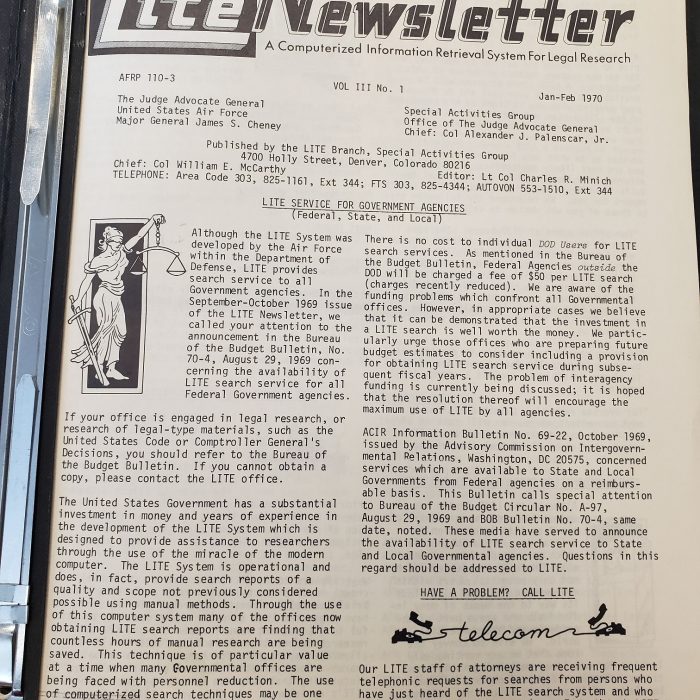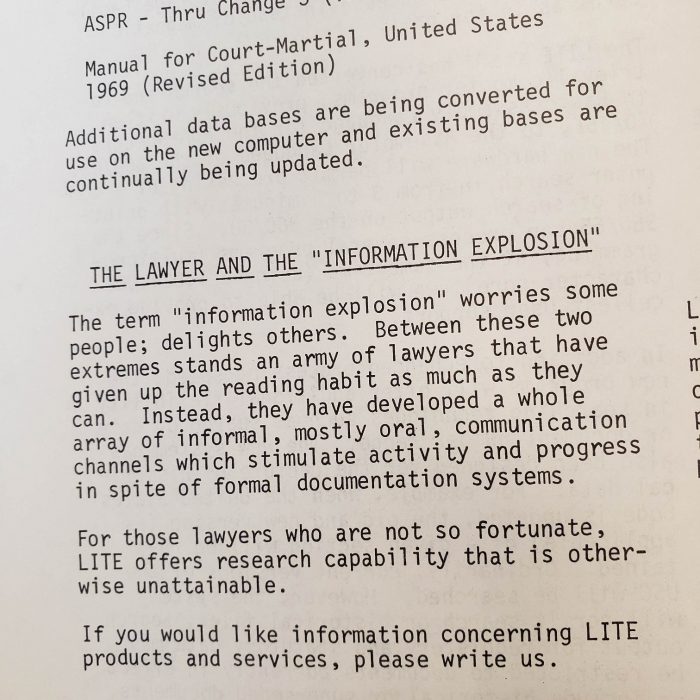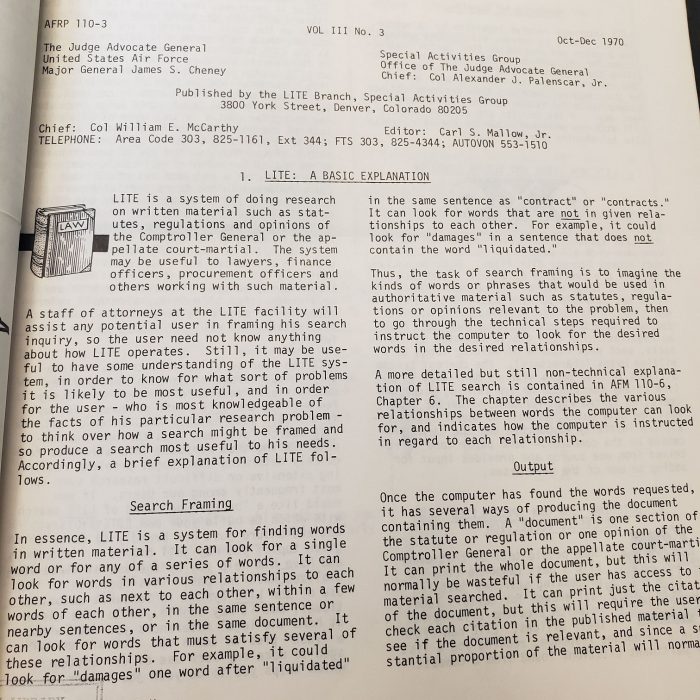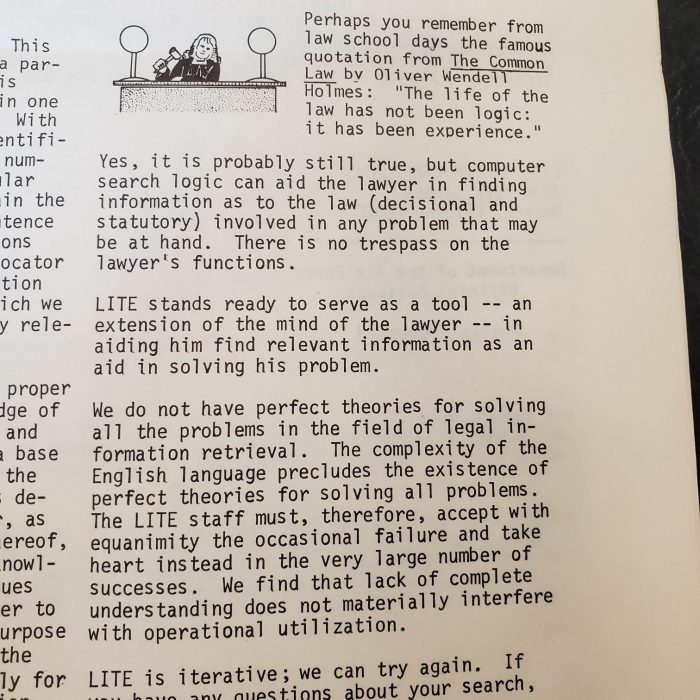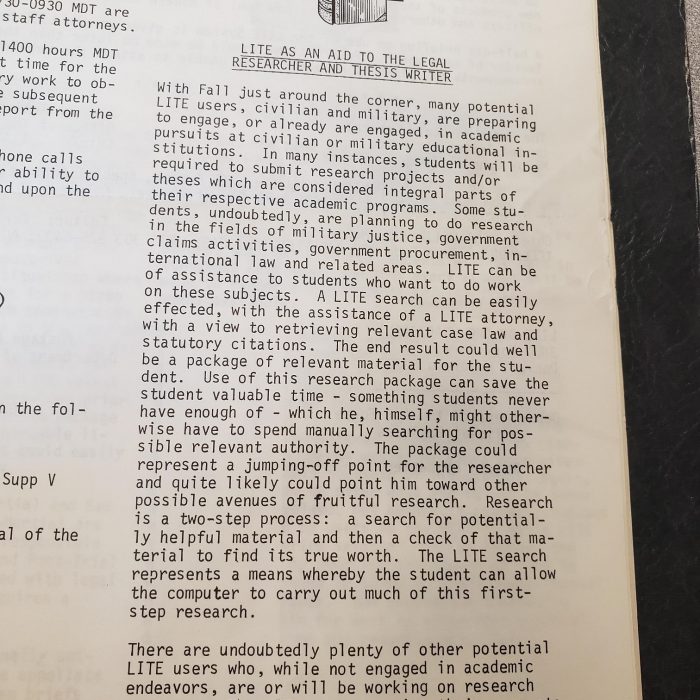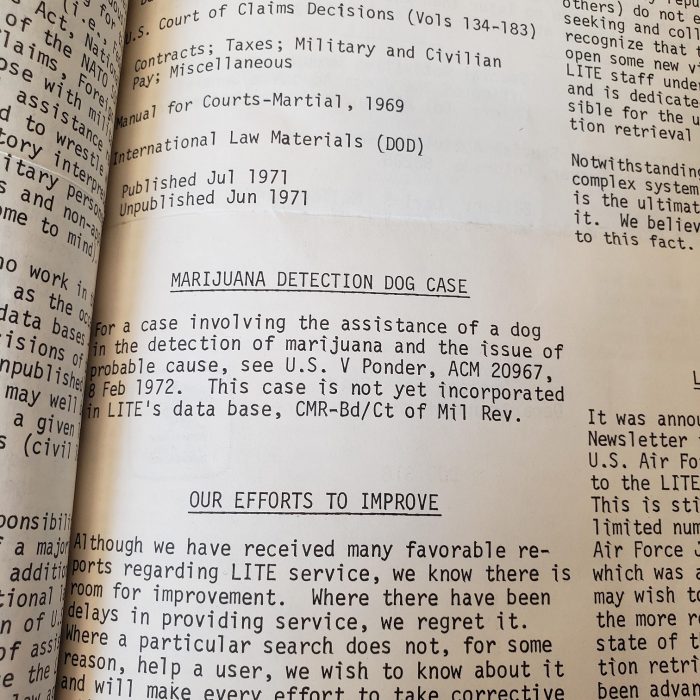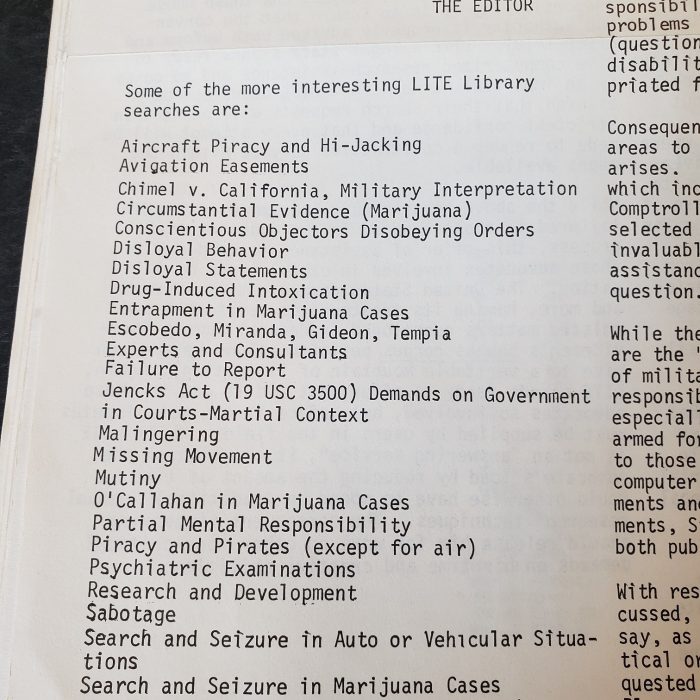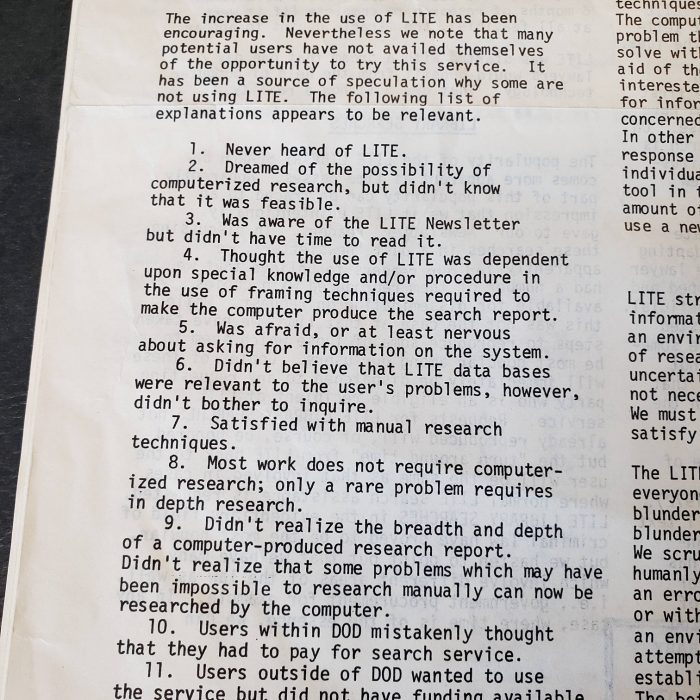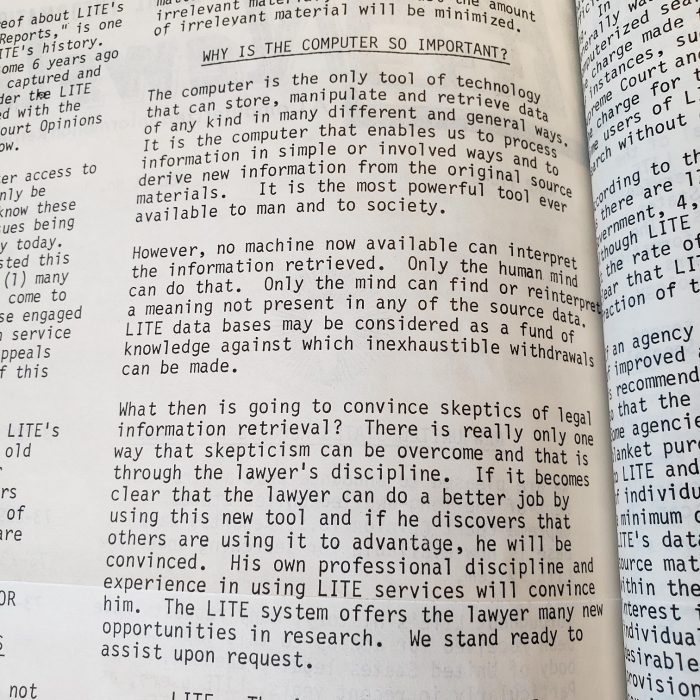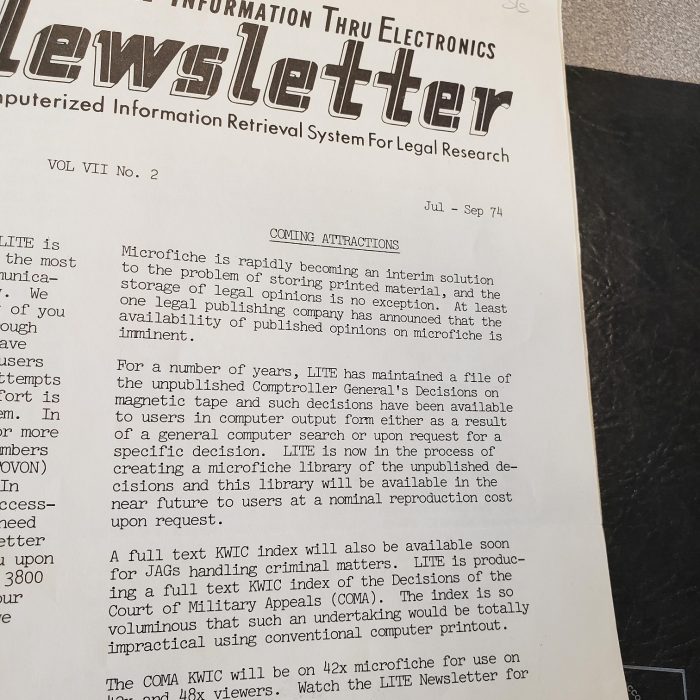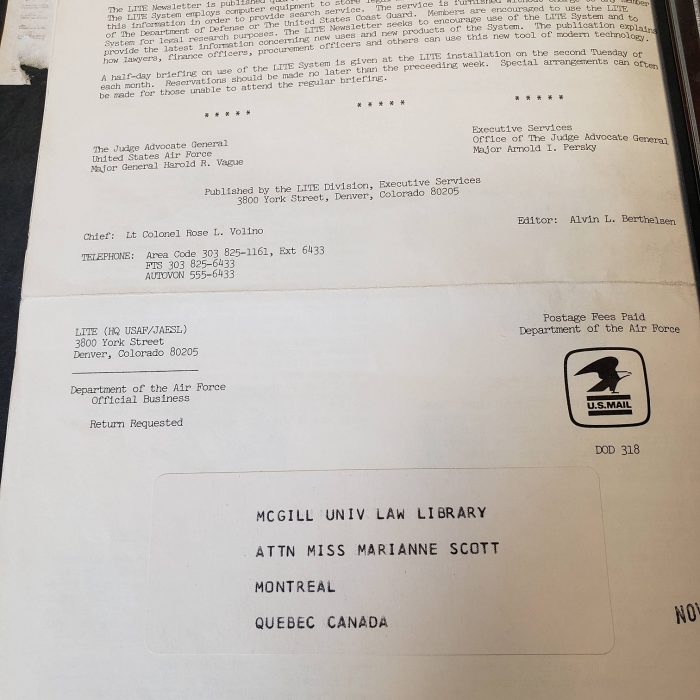Today we rediscovered Lite Newsletter, a newsletter published between 1968-1974 by the Office of the Judge Advocate General of the United States Air Force. After it was found, we decided that it was too rare of an item to keep in our regular journal collection, and so moved it into our rare book collection to ensure preservation (McGill owns volumes from 1970-1974). The content was so unique and interesting, we thought we would share a little bit about the newsletter and its contents!
Lite Newsletter was a newsletter dedicated to sharing news about the LITE System, a computerized information retrieval system for legal research that was developed by the Air Force and which provided search service to government agencies in the United States. LITE, which stands for Legal Information Thru Electronics, seems to have been a game changer in legal research in the Department of Defense in particular, saving “countless hours of manual research”. Run by a staff of attorneys, LITE was meant to help lawyers deal with the “information explosion” of the time. The LITE attorneys were trained in building effective queries for the LITE system to run. Based on descriptions of the search functions, it looks like LITE attorneys were essentially researchers who were particular adept at using Boolean and proximity operators (!).
LITE included many databases, including the United States Code, decisions of various boards and tribunals, published and unpublished international law agreements, and extensive regulatory material. The LITE Newsletter would keep government lawyers up to date with new additions to the databases, interesting and common LITE searches, and more. Eventually, a library was built with these searches, to save “computational time” on urgent requests that effectively repeated a previously completed search.
In one issue of the newsletter, a list of potential explanations for not using LITE were enumerated. Particularly entertaining reasons included:
2. Dreamed of the possibility of computerized research, but didn’t know that it was feasible.
9. Didn’t realize the breadth and depth of a computer-produced research report. Didn’t realize that some problems which may have been impossible to research manually can now be researched by the computer.
12. Does not trust any kind of research prepared by a machine.
Other explanations might resonate with fellow librarians today:
5. Was afraid, or at least nervous asking for information on the system.
6. Didn’t believe that LITE data bases were relevant to the user’s problems, however, didn’t bother to inquire.
7. Satisfied with manual research techniques.
One issue of the newsletter also goes into the importance of using computers for research: “The computer is the only tool of technology that can store, manipulate and retrieve data of any kind in many different and general ways […] It is the most powerful tool ever available to man and to society.”
It is interesting to note how far we have come with computer-assisted research, and yet sometimes, our struggles remain the same. “Information explosion” is now known as “information overload,” and is one of the most significant challenges of the Digital Age. People may now be comfortable with researching using traditional databases, but when artificial intelligence is thrown into the mix – for instance, with new document analyzers – there is increasing skepticism. Finally, students continue to struggle with library anxiety, and librarians continue to put significant efforts into library outreach.
The LITE Newsletter is available by consultation only, Mondays to Fridays, from 9am-5pm.

